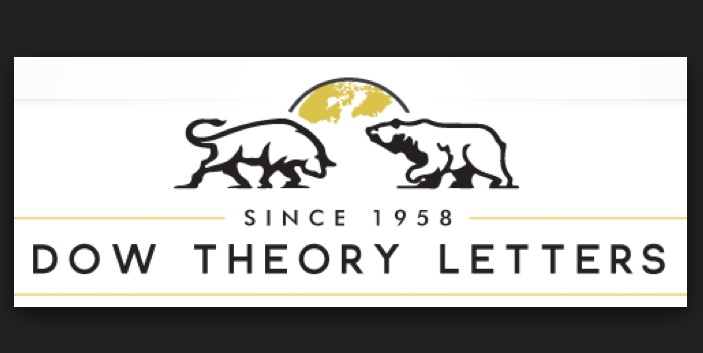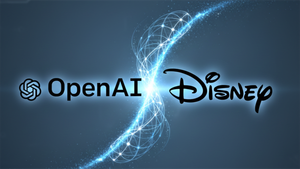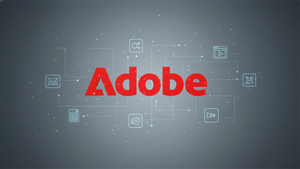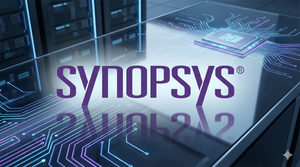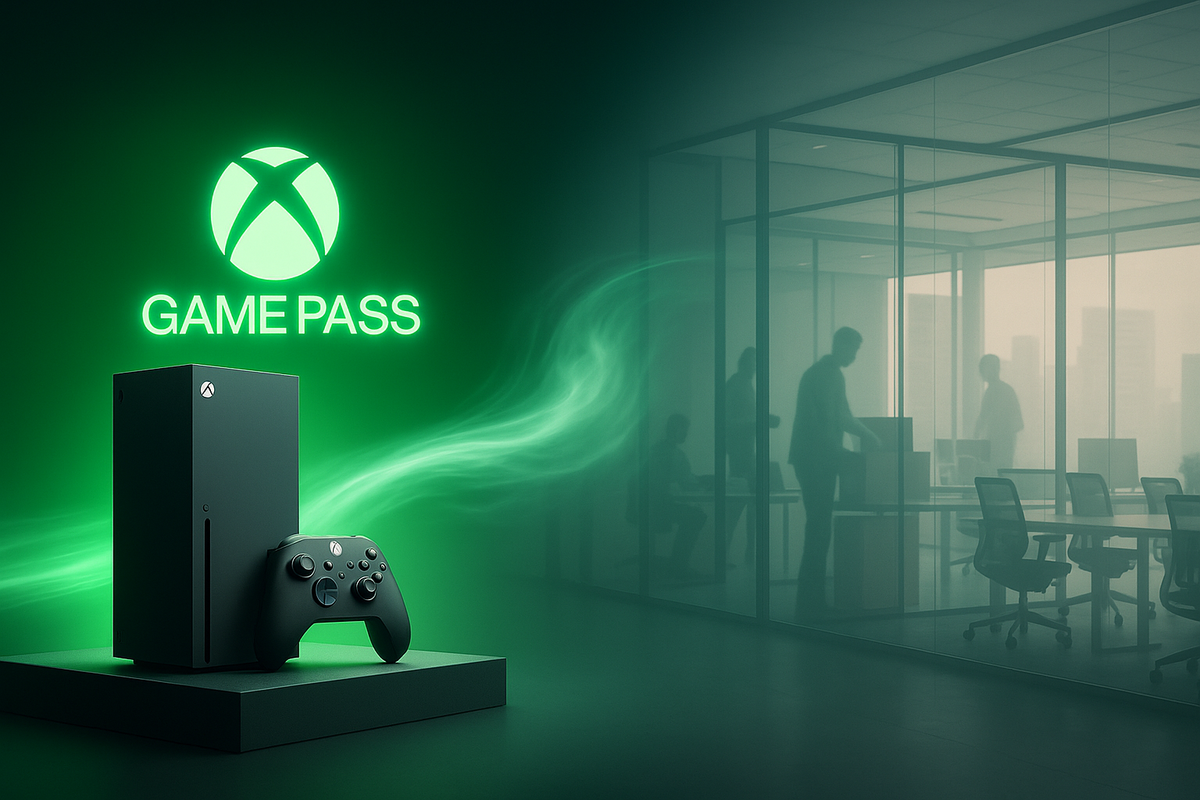
Microsoft's (NASDAQ: MSFT) gaming division is undergoing a profound strategic metamorphosis, recalibrating its approach to content delivery, platform accessibility, and operational efficiency. Recent developments, including an ambitious Xbox Games Showcase 2025, the relentless expansion of Xbox Game Pass, and significant enhancements to the Xbox app on Windows, paint a picture of a company striving for "subscription dominance" in an increasingly competitive landscape. This expansive vision, however, is being forged amidst a challenging period marked by extensive workforce adjustments, as Microsoft seeks to streamline operations and focus on core strategic growth areas. The immediate implications point to a future where Xbox aims to transcend traditional console boundaries, pushing for an "Xbox everywhere" philosophy that prioritizes content and services over strict hardware exclusivity, potentially reshaping the very fabric of the gaming industry.
A Strategic Realignment in the Gaming Sphere
The latest chapter in Xbox's strategic evolution has been characterized by a blend of aggressive content showcasing, platform refinement, and difficult internal restructuring. The Xbox Games Showcase 2025 served as a powerful declaration of intent, unveiling a robust pipeline of titles and a renewed commitment to both established franchises and new intellectual properties. Concurrently, the continuous bolstering of Xbox Game Pass underscores Microsoft's (NASDAQ: MSFT) long-term bet on subscription-based gaming as its primary growth engine, while significant upgrades to the Xbox app on Windows solidify its push into the PC gaming ecosystem. These forward-looking initiatives, however, are juxtaposed against a backdrop of several rounds of gaming division layoffs, signaling a calculated, albeit painful, effort to optimize for efficiency and focus amidst an ambitious transformation.
The Xbox Games Showcase 2025 was a highlight, revealing a compelling lineup that spanned genres and release windows. Key announcements included the confirmation of Call of Duty: Black Ops 7 for PC and consoles within the year, and the highly anticipated The Outer Worlds 2, set to launch for Xbox (NASDAQ: MSFT) in October and be a day-one Game Pass title. Obsidian Entertainment also surprised with Grounded 2, an early access title, alongside further details for High on Life 2, Super Meat Boy 3D, and Ninja Gaiden 4. Fans were also treated to an update on Indiana Jones and the Great Circle: The Order of Giants DLC, and extended gameplay for Clockwork Revolution. New IPs like Game Freak’s Beast of Reincarnation and Rebel Wolves Studios’ The Blood of Dawnwalker were showcased, demonstrating a commitment to fresh experiences, while beloved franchises Fable and Gears of War E-Day were confirmed for 2026. Beyond software, the event signaled Xbox's deeper entry into handheld gaming with the announcement of the Xbox ROG Ally X.
Xbox Game Pass continues to be a central pillar of Microsoft's (NASDAQ: MSFT) strategy, with confirmed additions for 2025 including major titles like Call of Duty: Black Ops 7 (for Ultimate and PC Game Pass subscribers), Hollow Knight: Silksong, The Outer Worlds 2, and Ninja Gaiden 4. Other notable day-one arrivals include Frostpunk 2 (on Xbox Series X|S for Ultimate subscribers), Bounty Star: The Morose Tale of Graveyard Clem, Mixtape, Towerborne, and Clockwork Revolution. These additions, alongside existing games added to Game Pass Core, reinforce the service's value proposition, even as growth has reportedly slowed, reaching around 35 million subscribers against an ambitious target of 100 million by 2030. Price increases for Game Pass and the rebranding of "Game Pass for Console" to "Xbox Game Pass Standard" in September 2024 also reflect adjustments to the service model.
The Xbox app on Windows has undergone significant enhancements, transforming it into a more unified and accessible PC gaming hub. Updates rolling out through late 2024 and September 2025 aim to aggregate installed games from various PC storefronts—including Steam, Epic Games Store, GOG, and Battle.net—allowing users to launch them directly from the Xbox app. A redesigned Home section, a "My Apps" tab for third-party launchers, cross-device play history, and controller-focused improvements (like a new task switcher) are all designed to offer a more seamless, console-like experience on PC and handhelds. These changes significantly expand the discoverability of titles, with nearly 400 new games now accessible through the app, over 100 of which support Xbox Play Anywhere.
However, this period of innovation and expansion has been shadowed by recent gaming division layoffs. Microsoft's (NASDAQ: MSFT) gaming segment has seen multiple significant workforce reductions, impacting thousands of employees. Following the Activision Blizzard (NASDAQ: ATVI) acquisition, approximately 1,900 staff were laid off in January 2024. This was succeeded by the closure of studios like Arkane Austin and Tango Gameworks in May 2024, an additional 650 cuts in September 2024, and a staggering 6,000 staff cut across the company in May 2025, heavily impacting the gaming division. Most recently, July 2025 saw further layoffs, including 10% of mobile game developer King's staff and various ZeniMax Media teams. Reports indicate the cancellation of titles like Rare's Everwild and Perfect Dark, alongside the closure of The Initiative. Xbox head Phil Spencer has framed these "tough decisions" as crucial for "enduring success" and "strategic growth," aimed at removing management layers and increasing agility. The initial market reaction to these announcements has been mixed, with investors often seeing layoffs as a cost-cutting measure that can positively impact short-term financials, while the gaming community often expresses concern over job security and the potential impact on game development quality and studio morale.
Navigating the Competitive Landscape: Winners and Losers
Xbox's evolving playbook, characterized by its "Xbox everywhere" vision, aggressive Game Pass expansion, and a pragmatic approach to workforce management, is set to create distinct winners and losers across the gaming industry. This strategic pivot by Microsoft (NASDAQ: MSFT) has far-reaching implications, influencing everything from platform competition to game development and consumer spending habits.
Microsoft (NASDAQ: MSFT) itself stands as a primary potential winner, albeit with considerable strategic risk. The shift away from strict console exclusivity and the push for Game Pass across multiple platforms, including PC and potentially other consoles, allows Microsoft to grow its total addressable market beyond just Xbox console owners. Reports indicate that while Xbox hardware revenue has seen a decline (a 22% drop year-over-year in a recent quarter), content and services revenue, particularly from Game Pass, is increasing, having achieved over $5 billion in annual revenue with double-digit year-over-year growth. By acquiring major publishers like ZeniMax Media (NASDAQ: MSFT) and Activision Blizzard (NASDAQ: ATVI), Microsoft has cemented its position as one of the largest content creators globally, bolstering Game Pass and expanding its reach into mobile gaming. This strategy aims for dominance in content publishing and reduces dependence on console hardware sales, mitigating associated financial risks.
Among other console manufacturers, Sony (NYSE: SONY), the maker of PlayStation, faces heightened competition, especially in the content and subscription space. Xbox's multi-platform push, particularly bringing strong IPs like Call of Duty (NASDAQ: MSFT) to PlayStation, creates direct competition for content on Sony's own platform. This intensifies the battle for subscription services, forcing Sony to adapt its own strategies, as evidenced by the revamped PlayStation Plus. While Sony's strength lies in its console install base and exclusive first-party titles, Microsoft's moves put pressure on Sony to continuously innovate its services and potentially reconsider its own exclusivity paradigms. Nintendo (TYO: 7974), with its unique hardware and family-friendly exclusives for the Nintendo Switch (TYO: 7974), operates somewhat in its own niche, but the broader industry trend towards subscription services and cross-platform accessibility could still indirectly influence its long-term strategy for Nintendo Switch Online and future hardware, if the market shifts dramatically.
Game developers — both first-party studios under Xbox Game Studios and third-party partners — present a mixed bag of impacts. First-party developers, such as Bethesda (NASDAQ: MSFT) and the numerous studios under Xbox Game Studios, benefit from increased resources, creative freedom, and a significantly wider audience reach through Game Pass and multiplatform releases. They can focus on creating compelling games without the sole burden of driving console sales. However, the widespread layoffs at studios like Arkane Austin and Tango Gameworks, along with the reported cancellation of titles like Rare's Everwild and Perfect Dark from The Initiative, underscore that even well-regarded studios face scrutiny if their output doesn't align with evolving strategic priorities or profitability goals within the larger Microsoft (NASDAQ: MSFT) corporate structure. For third-party developers, Game Pass can offer a significant upfront payment and boost visibility, but it also risks cannibalizing direct game sales, as players may wait for titles to join the subscription service rather than purchasing them at full price. This creates a dependency on Microsoft's deals, and some analysts question the long-term profitability for developers under this model if not carefully managed.
Finally, gamers are largely winners in terms of access and choice. Game Pass offers a compelling value proposition, providing a vast library of games, including new first-party titles on day one, for a monthly fee. This allows players to discover and experience many titles they might not have purchased individually. The "Xbox everywhere" vision, with seamless gameplay across console, PC, handhelds like the Xbox ROG Ally X, and mobile devices, offers unprecedented flexibility. Multiplatform releases also mean that gamers on PlayStation or Nintendo can access previously exclusive Xbox titles, expanding their options. However, some dedicated Xbox fans express concern about brand identity dilution and a perceived devaluation of the Xbox console if its major titles are available elsewhere, questioning the incentive to invest solely in Xbox hardware. Furthermore, the extensive layoffs raise concerns about potential impacts on future game quality, development timelines, and the overall job security within the creative industry.
Industry Tremors and Broader Implications
Xbox's strategic pivot has ignited significant transformations across the gaming industry, aligning with broader trends, creating ripple effects for competitors and partners, drawing regulatory attention, and echoing historical shifts in technology and entertainment. This isn't merely a tactical adjustment but a fundamental re-evaluation of how games are developed, distributed, and consumed.
Xbox's strategy is deeply embedded in several overarching industry trends. Central to its approach is subscription-based gaming, often dubbed the "Netflixification" of media, where access to a vast content library replaces individual purchases. The global subscription gaming market is projected for significant growth, highlighting a broader consumer preference for access over ownership. Simultaneously, cloud gaming through Xbox Cloud Gaming (xCloud) is democratizing access by enabling gameplay across various devices without requiring high-end local hardware, a trend fueled by advancements in high-speed internet and 5G technology. Furthermore, Xbox's multi-platform approach — increasingly publishing its games on rival platforms like PlayStation (NYSE: SONY) and Nintendo (TYO: 7974) — represents a strategic pivot from a hardware-centric model to a focus on content and services, aiming to make Xbox a ubiquitous gaming brand. This is coupled with an aggressive content acquisition strategy, most notably the $68.7 billion purchase of Activision Blizzard (NASDAQ: ATVI), along with Bethesda (NASDAQ: MSFT) and King, to bolster its content library and diversify its game offerings.
These strategic shifts create significant ripple effects on competitors and partners. Sony (NYSE: SONY) has responded by evolving its PlayStation Plus service to compete with Game Pass, though expressing caution about day-and-date releases of major first-party titles due to potential sales cannibalization. While PlayStation 5 (NYSE: SONY) has significantly outsold Xbox Series X|S (NASDAQ: MSFT) hardware, Xbox's multi-platform strategy has led to strong sales of Microsoft (NASDAQ: MSFT) games on PlayStation, even making Xbox a top publisher on that platform. This phenomenon may compel Sony (NYSE: SONY) and Nintendo (TYO: 7974) to further re-evaluate their own platform strategies, with Sony already exploring releasing some of its titles on PC. For developers and publishers, Game Pass can offer exposure and another monetization option, but it also carries the risk of reduced premium game sales on Xbox, with some estimates suggesting a decrease of up to 80% for certain titles, creating a complex dynamic for third-party publishers.
Regulatory or policy implications have been substantial, particularly concerning Microsoft's (NASDAQ: MSFT) large-scale acquisitions. The $68.7 billion acquisition of Activision Blizzard (NASDAQ: ATVI) faced intense scrutiny from regulators worldwide, including the US Federal Trade Commission (FTC), the European Commission (EU), and the UK's Competition and Markets Authority (CMA). Concerns focused on potential market dominance in cloud gaming and subscription services, and control over popular content like Call of Duty. To secure approval, Microsoft made significant concessions, including licensing Activision titles to competitors for cloud gaming (to Ubisoft (EPA: UBI) for 15 years outside the EU) and agreements with Nintendo (TYO: 7974) and Sony (NYSE: SONY) to ensure continued game accessibility. This acquisition has set a precedent for future tech mergers, indicating that regulatory bodies are increasingly focused on evaluating access, innovation, and platform dominance within the digital economy.
Historical precedents and comparisons illuminate Xbox's current path. The rise of Game Pass is frequently compared to Netflix's (NASDAQ: NFLX) disruption of the film and television industry, signifying a broader consumer preference for access over ownership. Xbox's move away from strict platform exclusivity marks a significant departure from a long-standing industry practice that has existed since gaming's inception. This strategy echoes the PC digital distribution wars, where content and financial incentives influenced platform choice. Microsoft's "Xbox everywhere" vision, leveraging its software and services across diverse hardware, has been likened to Google's (NASDAQ: GOOGL) Android strategy, creating an open ecosystem and profiting from its breadth. Essentially, the industry is transitioning from intense "console wars" focused on hardware sales to "consolidation wars," where large corporations acquire intellectual property and expand service offerings.
What Comes Next
Xbox's ambitious strategic pivot sets the stage for a dynamic and potentially transformative period, both for Microsoft's (NASDAQ: MSFT) gaming division and the broader industry. The short-term will focus on refining existing initiatives, while long-term visions paint a picture of an interconnected, ubiquitous gaming ecosystem.
In the short term, expect Xbox to double down on its Game Pass offerings, potentially exploring variations in subscription tiers to optimize revenue and sustain growth. Further multi-platform releases for Xbox's first-party titles are anticipated, with more games likely appearing on rival platforms like PlayStation (NYSE: SONY) and Nintendo (TYO: 7974) to expand reach and revenue beyond Xbox console sales. Addressing developer concerns regarding the Xbox Series S's hardware limitations for game development will also be a priority. The broader gaming industry will continue to witness significant growth in mobile gaming and further consolidation through strategic acquisitions, all while navigating ongoing regulatory scrutiny concerning app store practices and corporate governance.
Looking further ahead, long-term possibilities for Xbox are centered on an "Xbox everywhere" strategy, aiming for platform ubiquity where its games and services are accessible on any device with a screen. This involves a fundamental shift away from hardware dominance to focusing on software and subscription services, with an ambitious goal of reaching 100 million Game Pass subscribers by 2030. Cloud gaming is a critical component, fully integrating into mobile, desktop, and console experiences to attract a new wave of casual and international players. While not abandoning hardware, Xbox is committed to future hardware, including next-generation Xbox consoles by 2030, and potentially developing its own native handheld gaming device. Speculation even includes Microsoft (NASDAQ: MSFT) potentially licensing its Xbox OS to other manufacturers, akin to Google's (NASDAQ: GOOGL) Android strategy, to foster innovation and offer more diverse hardware options. For the wider gaming industry, long-term trends include the pervasive growth of Gaming-as-a-Service (GaaS), AI-driven transformation in development and player experiences, and increased interoperability and digital identity across platforms.
Strategic pivots or adaptations required will be crucial. Xbox's primary pivot involves moving away from traditional console exclusivity, aiming to publish games on multiple platforms and leveraging its Windows (NASDAQ: MSFT) strength to blur the lines between PC and console gaming. Adapting Game Pass offerings and pricing models, possibly through tiered access for new releases, is also a key adjustment. Microsoft (NASDAQ: MSFT) will need to exercise patience with its long-term investments in games and studio acquisitions, allowing them time to reach their full potential. For the broader gaming industry, leaders must adopt a strategic M&A mindset, understand the evolving regulatory landscape, and pivot towards digital-first business models, while developers adapt to player demands for challenging gameplay and visually appealing character designs.
Market opportunities for Xbox and the industry are immense, driven by a booming market exceeding $200 billion, the continued expansion of Game Pass, the lucrative mobile gaming segment, untapped regions like China, and the democratizing potential of cloud gaming. Cross-platform engagement, Microsoft's (NASDAQ: MSFT) robust content ownership through acquisitions, and emerging technologies like VR/AR offer further avenues for growth. However, significant challenges persist: declining Xbox console sales, potential Game Pass cannibalization of traditional game sales, inconsistent messaging that creates a "credibility gap" among fans, developer concerns over hardware capabilities, a stagnant overall console market, industry-wide layoffs, intense competition from Sony (NYSE: SONY) and Nintendo (TYO: 7974), and persistent regulatory hurdles globally.
Potential scenarios and outcomes vary widely. A best-case scenario sees Xbox successfully execute its "platform everywhere" strategy, establishing Game Pass as the indispensable subscription service across all devices, leading to sustained growth and a more accessible, interconnected gaming landscape. A worst-case scenario involves Game Pass growth stalling, acquisitions failing to yield expected returns, and a loss of developer confidence, leading to further studio closures and a contraction of the market. The most likely scenario is a continued, challenging pivot towards a software and services-centric model, with Game Pass as a cornerstone. A hybrid approach to exclusivity will likely emerge, with some major first-party titles becoming multi-platform while core Xbox experiences and next-gen hardware remain central. Xbox will face persistent challenges in effectively communicating its evolving strategy and maintaining brand loyalty amidst a rapidly changing and highly competitive environment.
A New Era for Xbox and the Gaming Industry
Microsoft's (NASDAQ: MSFT) Xbox division is undeniably navigating a pivotal moment in its history, attempting to redefine its identity and influence in the global gaming market. The confluence of ambitious content showcases, aggressive subscription expansion, platform unification, and significant internal restructuring underscores a bold, yet risky, strategic overhaul aimed at securing long-term dominance in a rapidly evolving industry. This "Xbox everywhere" vision, driven by Game Pass and an enhanced PC ecosystem, represents a conscious move away from traditional console-centric battles towards a broader, service-oriented future.
The key takeaways from these recent developments are clear: Xbox is betting heavily on the subscription model as its primary growth engine, striving for accessibility across multiple devices, and undertaking significant operational streamlining to achieve this. The Xbox Games Showcase 2025 highlights a strong content pipeline, essential for attracting and retaining Game Pass subscribers, while the enhancements to the Xbox app on Windows solidify Microsoft's (NASDAQ: MSFT) commitment to PC gaming. Conversely, the widespread layoffs, while presented as necessary for efficiency and strategic focus, highlight the immense pressure on the gaming division to deliver results and the challenging economic realities faced by the broader tech sector.
Moving forward, the gaming market is poised for continued transformation. Xbox's strategy will likely accelerate trends toward cross-platform play, cloud gaming, and subscription-based access, influencing how competitors like Sony (NYSE: SONY) and Nintendo (TYO: 7974) evolve their own ecosystems. Developers will increasingly need to consider the Game Pass model in their planning, and consumers can expect more choices in how they access and play games, though potentially at the cost of traditional game ownership. The industry will grapple with the balance between innovation and cost efficiency, and the human impact of rapid strategic shifts will remain a critical consideration.
Final thoughts on significance and lasting impact suggest that Xbox is not merely reacting to market trends but actively shaping them. By pushing the boundaries of what a gaming platform can be, Microsoft (NASDAQ: MSFT) is forcing a re-evaluation of business models and consumer expectations across the industry. The lasting impact will be seen in how successful Game Pass truly becomes as a global entertainment service, how well Xbox navigates the complexities of multi-platform distribution, and how its streamlined operational structure translates into sustained creative output and profitability.
Investors should watch for several key indicators in the coming months. Foremost will be Game Pass subscriber growth figures and overall Xbox content and services revenue. The reception of major day-one Game Pass titles like Call of Duty: Black Ops 7 (NASDAQ: MSFT) will be crucial. Monitor Microsoft's (NASDAQ: MSFT) gaming division's profitability margins post-layoffs, as well as any further announcements regarding strategic partnerships or content distribution on competing platforms. Pay close attention to analyst reports regarding the long-term sustainability of the Game Pass model and any shifts in competitor strategies, particularly from Sony (NYSE: SONY), as the battle for the future of gaming intensifies.
